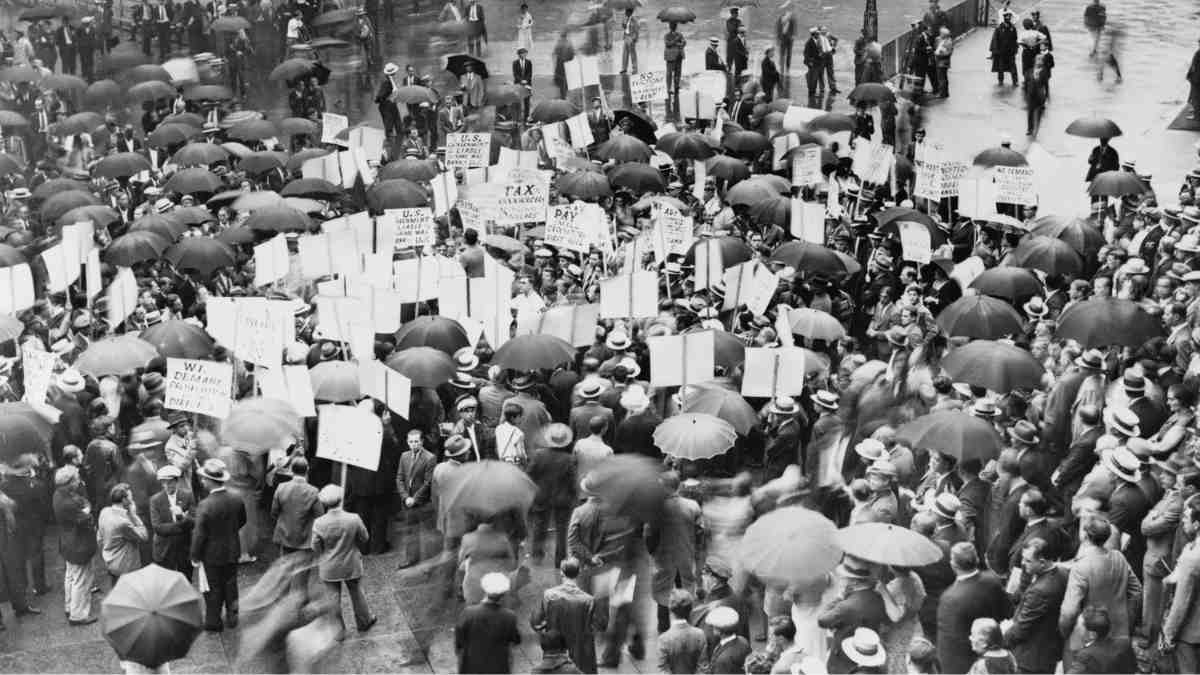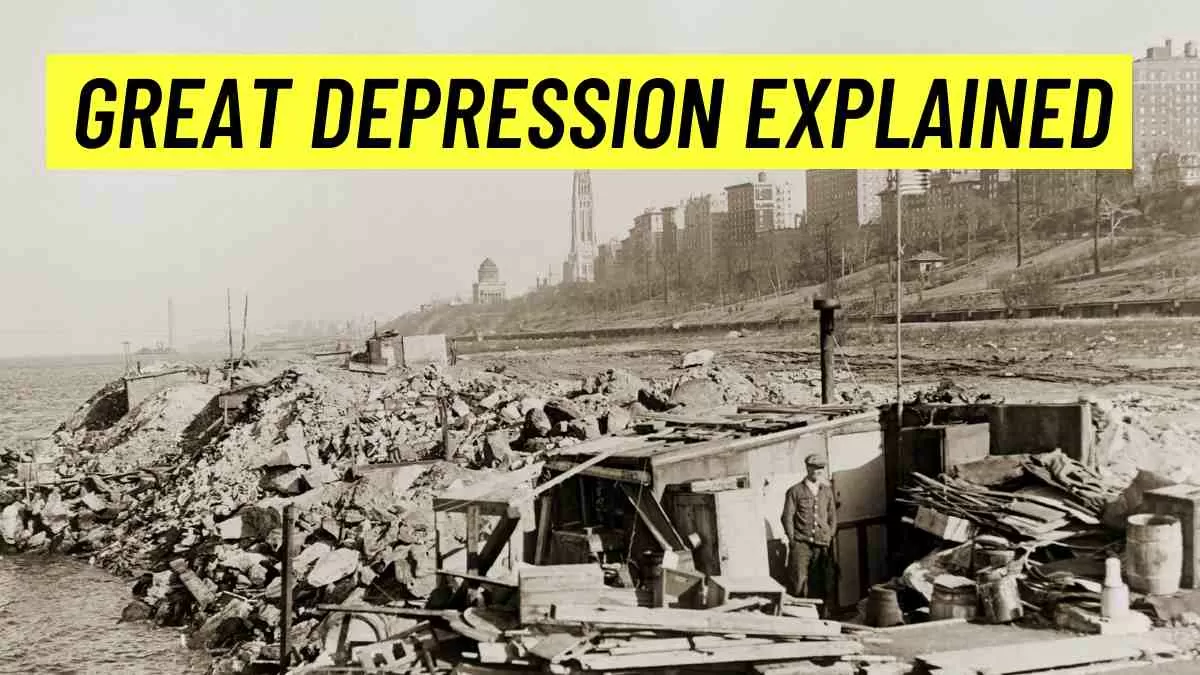The Great Depression was more than just a challenging period; it was the worst economic disaster the world had experienced in the 20th century. Imagine a storm swirling, but not only went through one or two countries, but rather, engulfed almost every country. What began as a storm caused by the economic climate in or from the United States changed lives forever. It began with the severe and dramatic collapse of the stock market in 1929, causing people to lose their savings seemingly overnight, and the adverse effects caught the attention of businesses.
Check Out: What was the Civil War? Check History, Aftermath, and Key Events
What was the Great Depression?
The Great Depression was not merely an American problem. Even if it were one, countries were so connected that it quickly spread across the globe. The economic fallout caused plants to close, banks to fail, and millions of people to be out of jobs and scramble to simply feed their families. Poverty became widespread, and social disruption became immense because people were starving, homeless, and terribly disappointed in society, government, policy, and the economy. The experience lasted until the late 1930s. Not that it ended, it changed the rules and reshaped how money worked around the world.
Origin of the Great Depression
By the late 1920s, things were starting to get shaky behind the scenes, even though many people felt optimistic. Factories weren't producing as much, wages weren't going up, and folks were piling on more and more debt. But despite these warning signs, most leaders and investors were so convinced that the economy would just keep growing forever that they didn't take the early problems seriously. They were basically blind to the trouble brewing.
Black Tuesday and the Crash
Then, on October 29, 1929, a day remembered as "Black Tuesday," the U.S. stock market completely fell apart. Imagine billions of dollars just disappearing in a matter of days. People who had invested all their money were terrified and tried to sell their stocks as fast as they could, which only made the crash even worse. This stock market crash didn't single-handedly cause the Great Depression, but it was like a huge push that started a terrible chain reaction. It led to banks failing, people losing trust in the financial system, and money becoming very hard to get. This combination plunged the entire economy into a ten-year nightmare.
Causes of the Great Depression
Here are some of the major reasons behind the Great Depression:
- Stock Market Crash of 1929
The spark that ignited the Great Depression was the stock market crash on October 29, 1929, known as Black Tuesday. Rampant speculation, margin buying (borrowing to buy stocks), and inflated stock prices led to a market bubble that eventually burst.
- Bank Failures
Following the crash, thousands of banks failed. People rushed to withdraw their savings, causing bank runs. Without federal insurance (which didn't exist at the time), people lost all their deposited money, reducing consumer spending.
- Reduction in Consumer Spending
With the loss of savings and jobs, demand for goods fell drastically. This led to factory shutdowns and more job losses, a vicious cycle of economic contraction.
- Global Trade Collapse
The U.S. passed the Smoot-Hawley Tariff Act in 1930 to protect domestic industries by raising import taxes. Other countries retaliated, leading to a global trade war that worsened the depression worldwide.
Effects of the Great Depression

The effects of the great depression were long-lasting and quite devastating.
- Mass Unemployment
At its peak, U.S. unemployment reached 25%. Worldwide, millions lost their jobs. Bread lines, soup kitchens, and homelessness became widespread.
- Homelessness and Poverty
Many Americans lived in makeshift shantytowns called “Hoovervilles,” named sarcastically after President Herbert Hoover, who was blamed for the crisis.
- Decline in Industrial Output
Factories closed or operated at minimal capacity. Between 1929 and 1933, U.S. industrial production fell by nearly 47%.
- Psychological and Social Impact
The Depression left deep scars. Families were broken, birth rates dropped, and a general sense of hopelessness prevailed. It also changed people's attitudes toward savings and debt for generations.
Must Read
